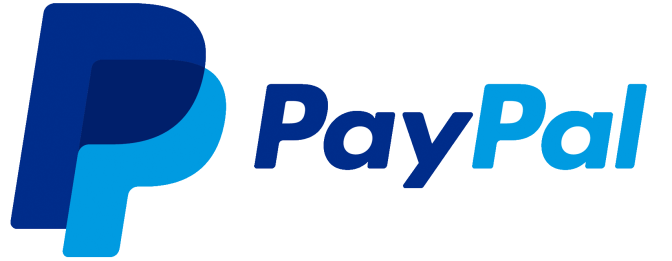In the ever-evolving gig economy, how freelancers manage and receive payments has transformed dramatically. With the rise of digital nomadism and the global expansion of freelance work, the need for efficient, reliable, and versatile payment methods has never been more critical.
This guide dives into the dynamic world of payment solutions, shedding light on how modern freelancers can navigate the vast seas of financial transactions. From traditional bank transfers to cutting-edge digital wallets, we’re on a journey to explore the top payment methods that empower freelancers in 2024, ensuring you’re equipped to thrive in this digital age.
The Top Payment Methods for Freelancers in 2024
The landscape of freelance payment methods is ever-changing, but 2024 has brought stability and innovation to the forefront. Freelancers are equipped with a vast selection of payment methods tailored to meet a range of requirements, including the ability to operate globally and engage in transactions that are cost-effective.
PayPal: A Universal Solution
PayPal stands out as a beacon in the payment method arena, providing a universal solution that caters to freelancers from all walks of life. Its ubiquity is its power, offering both new and seasoned freelancers a platform that is recognized and trusted globally.

Features and Benefits
- PayPal offers instant transfers for quick payment.
- One-touch payments streamline the checkout process.
- Robust security measures protect financial transactions.
- The ability to send invoices and make sales directly through the platform.
- Ease of receiving payments for services or products.
- Seamless integration with various business tools aids in accounting and financial tracking.
- These features allow freelancers to minimize administrative financial tasks and focus on their primary work.
Fees and Considerations
While PayPal offers a plethora of benefits, freelancers must navigate the fee structure with care. Transaction fees, currency conversion rates, and cross-border charges can all impact the net amount received. However, for many, the convenience and security PayPal offers may outweigh these costs, proving it to be a worthy cornerstone of modern freelance business transactions.
Payoneer: For the Global Freelancer
Payoneer emerges as a robust payment platform for freelancers who have transcended local markets and are operating on a global scale. It’s designed to bridge the financial gaps across borders, making it an indispensable tool for freelancers with a diverse international clientele.

Cross-Border Payments Made Easy
With its user-friendly interface, Payoneer streamlines the process of receiving and withdrawing funds in multiple currencies, which is a boon for freelancers who work with clients around the world. The ability to manage money in a variety of currencies helps freelancers save on conversion fees and simplifies the complexity often associated with international transactions.

Understanding Payoneer’s Fee Structure
Navigating the fee structure of Payoneer is crucial for freelancers who prioritize cost-efficiency alongside convenience. The platform typically charges for currency conversions, ATM withdrawals, and sometimes for incoming payments, depending on the origin. However, these fees can be offset by the benefits of expedited payments and reduced hassle, particularly for those who frequently deal with cross-border payments.
For freelancers, Payoneer stands out as a leading payment tool that not only promises connectivity with global clients but also provides a reliable and straightforward fee structure. This makes it easier for freelancers to plan their finances and focus on expanding their international reach.
Skrill: Low-Cost International Transfers
Skrill is carving out a niche in the digital wallet space by offering low-cost international transfer options. It’s a strong contender for freelancers who are looking to minimize fees while still maintaining a swift and secure service for sending and receiving payments worldwide.
Why Skrill Stands Out
Skrill distinguishes itself with a straightforward approach to international money transfers. Its ability to process transactions quickly and its user-friendly platform make it a favorite among freelancers who need to transfer funds without the wait or the hefty fees commonly associated with traditional banking systems.
Skrill’s Pricing Model
Understanding Skrill’s pricing model is critical for freelancers who watch their bottom line. While offering competitive rates for currency conversion and international transfers, Skrill also provides transparency in its fee structure, which includes transaction fees that are often lower than many banks. This clarity allows freelancers to forecast their finances accurately and take advantage of Skrill’s cost-effective solutions for their business needs.
Escrow: Secure Payment for Big Projects
When it comes to handling significant sums and substantial projects, freelancers need a payment method that safeguards their interests – this is where escrow services shine. An escrow service is when a neutral third party safeguards the funds for a transaction between two other parties, overseeing the payment until the transaction’s terms are met. It acts as a guarantee, holding the money until all conditions of the agreement are met.

How Escrow Works
The process starts when a client deposits the payment into an escrow account. The funds stay there, secure and untouched, until the job reaches its completion milestone as per the contractual agreement. Only then is the money released to the freelancer. This method adds a layer of protection for both parties, ensuring that the freelancer will be paid on time and the client will receive the promised work before the funds are released.
The Benefits of Using Escrow
For freelancers, the benefits of using escrow services are manifold. It provides financial security and builds trust with the client, assuring them that their payment is protected until they’re satisfied with the job. It also mitigates the risk of non-payment, a common concern in the freelance community, and facilitates a more structured and professional approach to handling large project finances.
Bank Transfers
Many freelancers prefer bank transfers, also known as wire transfers, for their clear-cut and uncomplicated method of receiving payments. They work by allowing one bank to communicate directly with another to transfer funds. This method is particularly favorable for large-sum transactions and is widely trusted due to its security and the involvement of established financial institutions. For freelancers, bank transfers can mean fewer complications with currency exchange, and since they’re recognized globally, they facilitate easy payment from international clients. Despite typically incurring a fee and having longer processing times compared to digital payment methods, bank transfers remain a staple in the freelancer’s financial toolkit due to their reliability and straightforward approach.
Emerging Trends in Freelancer Payment Methods
The freelance world is rapidly embracing innovative payment methods that match the speed and fluidity of the digital age. As we venture into 2024, two trends stand out for their potential to revolutionize how freelancers receive payment.
Cryptocurrency: The Future of Payments?
Cryptocurrency is making a bold statement as a potential future leader in payment methods for freelancers. Its decentralized nature offers a level of freedom and efficiency previously unknown. With cryptocurrencies, freelancers can receive payments swiftly and often with lower transaction fees, regardless of geographical boundaries. The enhanced confidentiality and robust security features offered by blockchain technology also contribute to its appeal for numerous users.
Mobile Wallets: Increasing Accessibility
The convenience of mobile wallets cannot be overstated. Platforms like Apple Pay and Samsung Pay are reshaping the payment landscape, providing freelancers with the ability to receive payments directly on their mobile devices. This technology not only streamlines the process of getting paid but also offers enhanced security features, ensuring that managing and accessing funds is as easy as a tap on the screen.
These emerging trends point towards a future where flexibility and accessibility are paramount for freelancer payment methods, aligning perfectly with the on-the-go lifestyle of the modern digital worker.
Wise(Formerly Transfer Wise)
Wise, formerly known as TransferWise, offers freelancers a cost-effective and efficient solution for receiving international payments. Wise is recognized for offering genuine mid-market exchange rates, minimal fees, and the versatility of a multi-currency account, enabling freelancers to receive payments in various currencies effortlessly. This streamlines the payment process, making it as straightforward as local bank transfers and ensuring freelancers keep more of their earnings. Wise’s transparent pricing model and ease of use make it an increasingly popular choice among professionals working with a global client base.

Payment Methods for Freelancers: Maximizing Your Business’s Potential
For freelancers, the integration of payment methods with their business tools is not just a convenience—it’s a strategic move towards operational excellence. By syncing payment systems with project management tools, invoicing software, and customer relationship management (CRM) systems, freelancers can create a seamless workflow that not only saves time but also presents a professional image to clients.
Integrating Payment Solutions with Freelancer Business Tools
Integrating payment methods directly into business tools can significantly streamline freelancers’ operations. It allows for automated invoicing, real-time payment tracking, and consolidated financial reporting. This reduces the administrative overhead and speeds up the time to get paid, which can improve cash flow management. When payment processes are aligned with project timelines and milestones, freelancers can enjoy a more predictable and stress-free financial environment, allowing them to focus on delivering exceptional work rather than chasing payments.
Choosing the Best Payment Methods for Freelancers
Choosing the best payment method as a freelancer hinges on several critical criteria to ensure smooth and secure financial transactions. Consider the geographical reach and currency support if working internationally, the transaction fees, withdrawal options, and ease of use. The payment method should integrate effortlessly with your existing business tools and offer robust security to protect your financial data. Dependability is crucial; the selected service should be well-established with a consistent operational history and reliable customer service. Finally, consider the preferences of your clients and the industry standards, as this could influence payment speed and satisfaction. Choosing an appropriate payment method enhances your workflow and strengthens your professional image in the freelance industry.
Final Thoughts on Payment Methods for Freelancers
As we wrap up our exploration of payment methods for freelancers, it’s clear that the right choice can significantly influence the success of a freelance business. It’s about balancing cost-efficiency with convenience, security with accessibility, and aligning with client expectations. The landscape of freelance payments is evolving, with digital platforms and emerging technologies offering new avenues for managing finances. In conclusion, selecting the best payment method is not just about getting paid; it’s about empowering your freelance venture for future growth and stability.
FAQs
What are the key factors to consider when choosing a payment method as a freelancer?
Consider the fees, currency support for international payments, ease of integration with business tools, security measures, and the payment preferences of your clients.
How does an escrow payment system benefit freelancers?
Escrow provides security by holding payment until project milestones are completed, reducing non-payment risk and building trust with clients.
Can cryptocurrencies be used as a payment method for freelancers?
Yes, cryptocurrencies offer fast, low-fee transactions and enhanced security, but be aware of their volatility and ensure clients are willing to use them.
Are mobile wallets a good option for freelancers?
Mobile wallets like Apple Pay and Samsung Pay offer convenient and secure payment options, especially for freelancers who need to manage transactions on the go.


